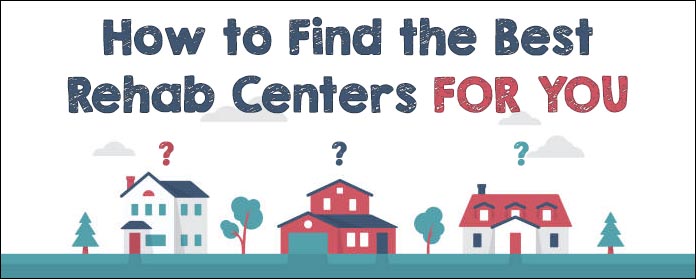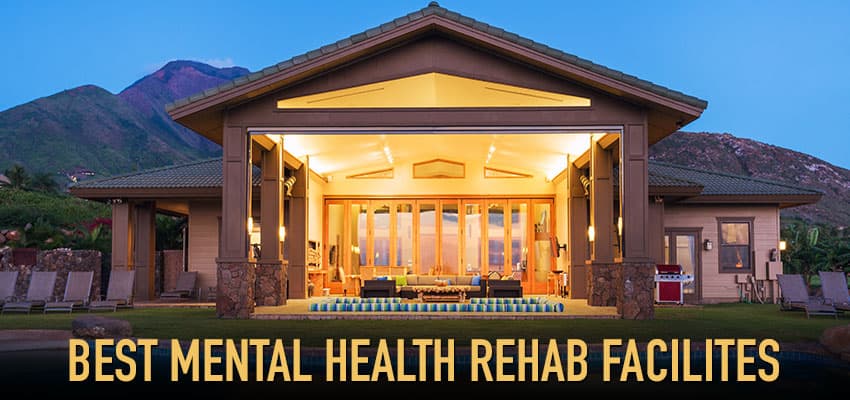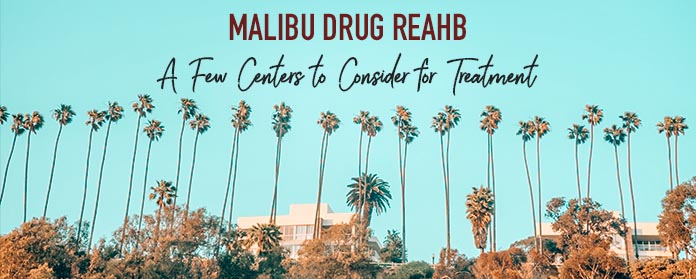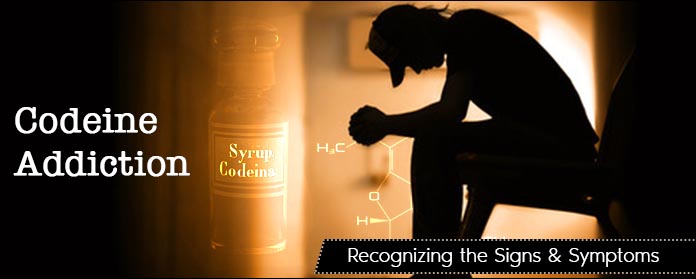The reasons people start abusing drugs are as varied as there are people. Some people start because of physical and psychological abuse. Some people use drugs to cope with difficult life changes.
Still, other’s find that they have become addicted through prolonged prescription drug use.
Of the millions of people battling addiction, only 10% will actually seek treatment.
Seeking treatment greatly increases your chances of getting sober and staying that way. Just as important as seeking treatment is the type and location of treatment.
Keep reading to discover how to find the best rehab centers for you or a loved one.
Types of Rehab
Getting sober is no easy feat. It’ll require building patience and personal strength to be successful.
Before heading off to a facility, you’ll need to know the kind of rehab that is available. Rehab programs offer different options to suit different needs.
Inpatient
Patients are hospitalized for inpatient treatment. They receive 24-hour care for addiction and other health issues in a secure environment.
Inpatient treatments are usually for more severe addictions. Detoxing from a severe addiction can pose a significant health risk.
Outpatient
Outpatient treatment is less disruptive to the patient’s life. He/she is able to maintain a job or go to school during the day. Patients check into a care facility for a few hours a day and go home after.
Outpatient treatment is typically for milder addictions.
Residential
Residential treatment facilities are home-away-from-home centers. The patient has the benefit of inpatient care but in a comfortable, homey environment. There is 24-hour care and an emotionally supportive environment.
Recovery Housing
Recovery housing is supervised temporary housing where the members can receive treatment. It boasts a supportive community that promotes substance-free living. Members can remain in this environment months or years after treatment is over.
How to Find the Best Rehab Centers
Drug rehab facilities are not one-size fits all. Each facility has a different way of functioning that may work better for some than others. Here are some tips to find the best facility for you:
Get a Professional Assessment
The most important first step in finding treatment is to get a professional assessment. A social worker, doctor, or psychiatrist certified by the ASAM will know what treatment methods to prescribe.
If you have a dual diagnosis, you will want to find a center that is equipt to deal with both issues. For example, a person may have an opioid addiction and also be battling anxiety.
This professional will evaluate your needs based on addiction and any previous recovery attempts. Patients that have trouble maintaining daily activities will most likely receive inpatient treatment.
Location
Everyone is affected by their environment. For an addicted person, it contains triggers that drive them to relapse. Understanding how the environment plays a part in mentality may serve as the key to recovery.
For outpatient treatment, the patient will typically remain in their normal environment. Recovery housing also offers a comfortable outpatient experience while removing environmental factors.
Some centers are out in the country. Others are in the middle of a city. Consider which of these environments will allow you to recover with the least stress.
Treatment Approach
Some facilities specialize in treating certain addictions. Some centers focus on behavioral disorders, while others focus only on alcohol addiction. Check with the facility and what they treat to avoid going to a center that cannot help.
Detox is a necessary part of drug treatment, but it cannot stop there. A facility that sends you or your loved one home after detox may not be right for longterm success.
Some centers also have a more medicine-based approach, while others focus on spirituality.
Quality Track Record and Accreditation
A treatment facility should have a track record of longer than five years. When addiction services are in high demand, predatory centers pop up. These centers won’t typically be around long due to poor or illegal practices.
Also, don’t confuse a very fancy and expensive treatment center as a sure fit. Accreditation and evidence-based treatment services exist to ensure you can find the help that works.
Evidence-based treatment focuses on using techniques that are proven to lead to success. Behavioral therapy is a proven method to change behaviors around drug abuse.
Pharmacotherapy is an evidence-based addiction specific method. Medication is used as a way to help ease an addicted person off of the offending substance.
The two major certifying bodies for rehab centers are the Joint Commission and the Commission on Accreditation of Rehabilitation Facilities (CARF). They set industry standards for drug treatment centers. Certification will ensure they are following standard ethical and legal practices.
Questions to Ask
Arm yourself with information.
Ask these questions when deciding on the best center for you:
- Do they accept insurance?
- If they don’t accept insurance, do they have financing options?
- Can the facility diagnose and treat co-occurring disorders?
- What type of treatments are available? What methods are used?
- Are pharmacotherapies offered?
- Are treatments tailored to individual patients?
- Does the facility offer continuing treatment after graduating from the program?
- Is the center accredited?
These questions will help to quickly decide if a center is not for you.
Insurance Coverage
Rehab costs can quickly get out of hand. Depending on the facility, prices sore from a few hundred a month to a few thousand.
Under the Affordable Care Act, insurance companies are required to cover treatment for substance abuse. However, there are limitations. Check with your state government to find out what your options are.
Getting Help
Seeking help for the addiction is the beginning of a journey. Though the road to sobriety is not easy, it is possible. Talk to a medical professional to get an understanding of what you need for recovery. The type of treatment you receive is very important to the outcome of the program.
Check with your insurance provider and state to see what is covered on your plan. The facility you choose should be accredited and have a proven track record.
Treatment should not be one-size fits all. The best rehab centers will be ones that tailor treatment for your individual success.
If you need an answer to a frequently asked question about addiction and treatment, click here.





